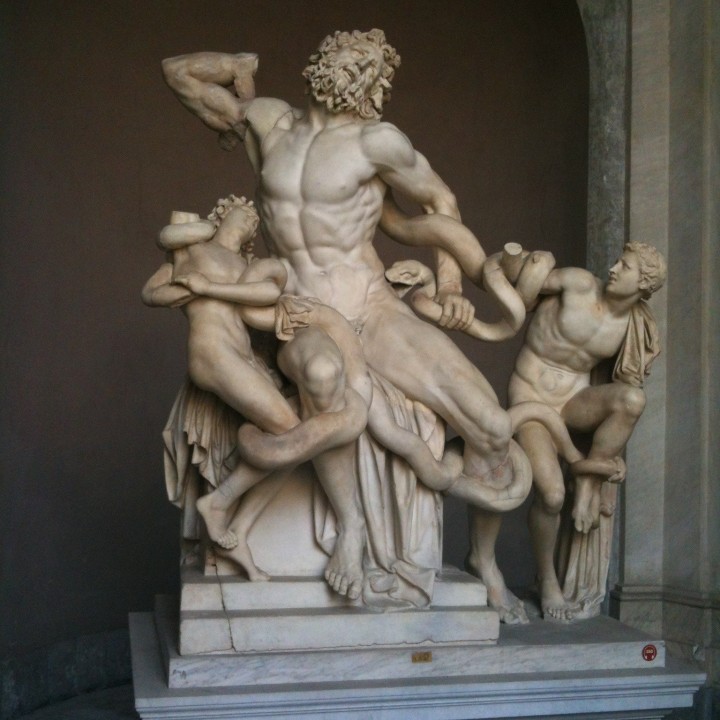What was more important, the Classical or the Hellenistic era?

For some scholars, the Hellenistic period is considered as a period of decadence or degeneration when compared to the brilliance of the Greek Classical Era. Without a doubt, the Hellenistic times were the beginning of a new status quo. However it was closely connected to its preceded time period.
The Classical period is known as the best time of the Ancient Greek antiquity, the most impressive era; being so significant itself that it cast a serious influence to all western civilization. More particularly, Athens became the intellectual centre of the ancient world -literature, philosophy, sciences, arts, architecture- all were at their prime. As Starr (1983:275) quotes ”the potentialities of Hellenic culture were gathered together at this time in a great, many-sided outburst.” The less numerous Greeks were unified against the enormous Persian Empire and they managed to defeat it. Athens and Sparta came into collision as a result of their developing power and need of imposition to each other.”
Henceforth, the Hellenistic period is considered less important and less worth-mentioning. It did not present the impressive characteristics the Classical period presented; however that does not make Hellenistic times less significant. It was a period of abrupt changes that altered everything that preceded it to its foundations. Yet, these changes did not cut off the Hellenistic Period from the Classical Period or vice versa.
The changes that took place were seen to be the evolutionary step between the two historical periods and contributed to the continuity of Classical Times through the Hellenistic Times. Elements like religion, philosophy or literature changed their perspectives during Hellenistic years but used the starting material of Classical Times. For example, according to Bugh(2006:16) “Alexander married two princesses of the Achaemenid royalty and around 90 of his Companions took brides from the Iranian nobility. That could be viewed as a continuation of traditional Argead policy, which saw marriages as a means of consolidation; Alexander’s own mother Olympias came from the royalty of neighboring Molossia.”
Another example can refer to the well-known Greek city-states or poleis. Their physical and social entity continued to exist throughout the Hellenistic period. In older poleis, the element of continuity between Classical and Hellenistic times is strong (Bugh, 2006:54). Therefore, the progress of the era when it comes to what I have previously referred to should not be taken as decay or as the end of the classical period.
The innovations that appeared during the Hellenistic period do not paint the picture of degeneration; contrariwise they paint the picture of evolution by using all the meritorious material from the Classical period and transforming it into what today is known as Hellenistic. The two historical periods were at a constant interaction, with Hellenistic period evolving the Classical elements. The change in peoples’ perception and understanding of the world, the different and multiple incentives resulted in that evolution. The Hellenistic period being different and totally unlike to its preceded historical period should not constitute a decadence but a continuation.
What I am trying to prove is the continuity of the historical periods and especially that of Hellenistic Times succeeding the Classical Times. The Hellenistic era is fascinating to itself with arts, exploration, literature, theatre, architecture, music, mathematics, philosophy and science being spread deep into the Near East. The Greek civilization reached places that Greeks were never heard of. Every part of the Classical Period that constituted civilization, during the Hellenistic Period continued to evolve. It would be wrong and unrealistic for the historical period that Alexander the Great inaugurated to be regarded as less historically important.
Each historical period reflects the way its people were handling and confronting every aspect of their life. During Hellenistic Times people took the magnificent outburst of Classical Times and evolved into what today composes the Hellenistic civilization. It would be prejudiced and one-sided if we were just following the idea that the Classical Times were the prime and the Hellenistic times were the decay of it. They are two distinguished periods, each of which has something else to contribute, however they are not unconnected. On the contrary they are close related by means that the Hellenistic Times continue the evolution of the Classical times, expressed through a different point of view.
By Alexia Michalaki
BIBLIOGRAPHY:
Bugh R. Glenn. 2006. The Cambridge Companion to the Hellenistic World. Cambridge University Press.
Starr G. Chester. 1983. A history of the ancient world. 3rd edition. Oxford University Press.
